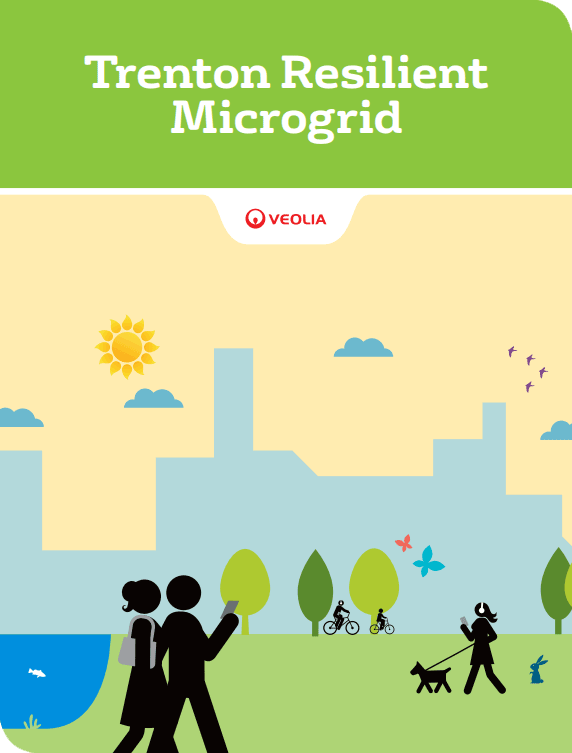Microgrids are small, localized energy grids that can connect to a city’s main power grid. During extreme weather events, microgrids can disconnect from the main power grid, working autonomously and supplying power to smaller network, improving city resiliency in the face of power outages. As a result, there is a push for deploying more microgrids and distributed generation by local and federal governments.
What’s Happening at Both the State- and Policy-Level?
Hurricane Sandy was a wakeup call for the country. Policymakers are working to update energy policies and regulations, facilitate grants, and/or supply financing in order to put microgrid projects in motion. California, Connecticut, Massachusetts, New York, and New Jersey are just a few example of states leading the nation in these efforts, offering over $100 million combined in microgrid grants. For example in New Jersey, the state Board of Public Utilities (BPU) recently approved $2 million in funding for 13 Distributed Energy Resource (DER) microgrid feasibility studies.
Trenton Microgrid
Among those 13 NJ BPU grant recipients, Veolia North America was awarded the feasibility study of a microgrid that integrates with Veolia district energy network in downtown Trenton New Jersey. First and foremost, this decision was propelled by the need for improved city resiliency. But beyond that, microgrids offer additional benefits to communities: they can act as a clean, reliable source of power, meaning reduced greenhouse gas emissions and curbed environmental impacts.
Why Trenton?
Trenton is home to critical municipal and commercial structures that play an important role during an emergency. The proposed resilient microgrid would service 30 buildings across downtown Trenton, incorporating energy efficiency measures to reduce electric grid demand. The proposed microgrid would also expand upon the existing network of hot and chilled water pipes underneath the city, capable of supplying 14,000 tons of cooling and 160 MMBTUh of heating across 12 miles of chilled water and hot water piping. Critical facilities, such as the Governor’s Office, the state prison, and the State Justice Complex, would remain 100% operational, even during a power blackout.
Safeguarding the Future
In the event of another natural disaster striking New Jersey, Trenton's microgrid will be a reliable source of power for the state's future. To learn more about Veolia's microgrid in Trenton, the buildings it will service, and the amount of heating and cooling power it will supply, download our Veolia Trenton Microgrid brochure.



